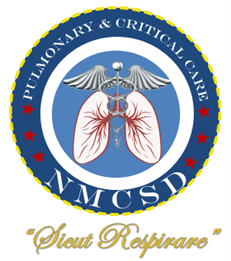As outlined in Section 6 of this handbook, thorough guidelines on the levels of procedural supervision are provided. It is mandatory for all our pulmonary and critical care fellows to receive appropriate training in the performance of invasive procedures, under supervision, until they earn the competency to carry out these independently. Independent operation mandates:
• A comprehensive understanding of the procedure, its risks, and benefits.
• Awareness of the procedure’s indications and contraindications.
• Strict adherence to the hospital’s policies and procedures.
• Awareness and preparedness for any potential complications.
• Upholding the standard of care for the procedure in question.
• Accurate documentation of the procedure and the patient’s outcome.
• Understanding of the institution’s protocol for reporting adverse events and complications.
• Maintenance of a safe and effective practice environment.
Upon demonstration of competency, fellows will be certified by the program director, thereafter permitting independent procedural work. This certification is an obligatory prerequisite for unsupervised work and fellows who obtain this certification will be considered for unsupervised work on a case-by-case basis, with the attending physician making the final call, taking into account their comfort level with the fellow’s proven abilities, and the given patient’s complexity. With validated competency, standard procedures categorized as “Category A” may then be performed by fellows independently.
However, certain particular procedures will always require at least indirect supervision due to institutional and program guidelines. Senior fellows, proven competent and eligible for the pulmonary board exam, can perform these supervised procedures independently without direct oversight but with an attending physician available immediately for assistance when needed. These procedures require prior consent from the responsible staff and a letter from the program director granting permission in the fellow’s training file. These procedures are further detailed in Section 6 of this handbook.
Advanced diagnostic and therapeutic procedures such as EBUS bronchoscopy, rigid bronchoscopy, percutaneous tracheostomy, navigational bronchoscopy, and medical thoracoscopy, classified as “Category B” and “Category C” procedures, will always require direct supervision. Likewise, critically ill inpatients’ intubations require direct supervision despite being a “Category A” procedure. This requirement reflects the critical nature of these patients and is designed to add another level of patient safety.
Competency certification can be withdrawn by the program director or department chair at any given time, should there be doubts regarding the fellow’s abilities, judgment in the selection of patients, or patient safety assurance.
